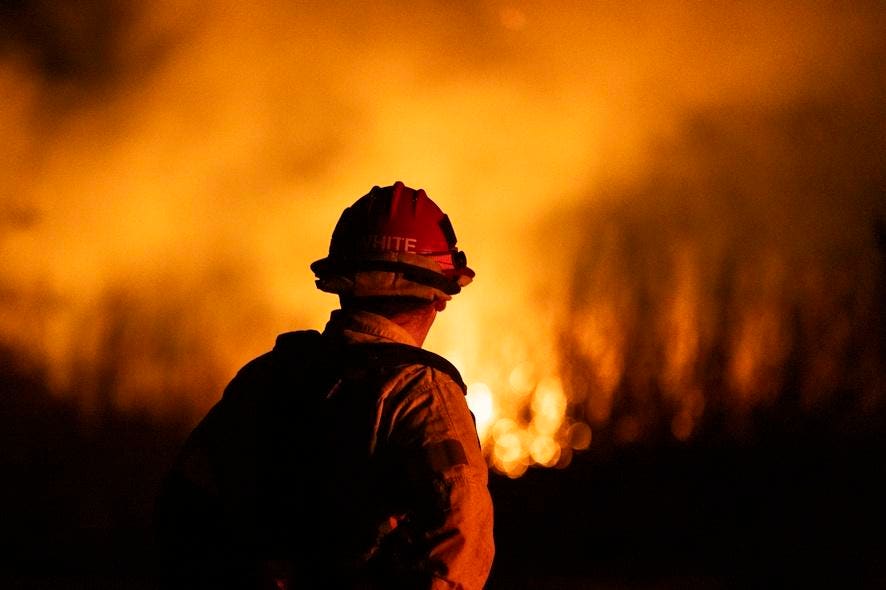Physical Address
304 North Cardinal St.
Dorchester Center, MA 02124
Physical Address
304 North Cardinal St.
Dorchester Center, MA 02124

The Auto Fire in Oxnard, North West of Los Angeles, California, on January 13, 2025. (Photo by … [+]
The amount of online climate disinformation is rapidly increasing, fueled largely by extreme weather events.
Over the last year, conspiracy theories about Hurricane Helene, for example, have included claims about government weather manipulation and mining land-grabs, with fake AI-generated content spreading wildly.
Other recent climate-related conspiracy theories included the removal of dams and geoengineering techniques being used to worsen floods in Spain.
Meanwhile, when Los Angeles fell victim to massive wildfires earlier this year, some claimed there were bans on pumping water, or that water was being diverted to influential pistachio farmers.
And, said NGO Global Witness in a new report, “This is likely to worsen in 2025, with a new US administration that is hostile to climate action, and the move by Meta to end its fact-checking programme in the U.S., which would have provided more reliable information to users about false climate claims they were seeing on their feeds.”
According to the researchers, there’s big money in climate misinformation for some. The team found that the Epoch Times, for example, which regularly publishes climate-sceptic content, generated almost $1.5 million in combined revenue for itself and Google over a 12-month period.
“Producing sensationalist climate denial content is quick and easy, especially with the advent of generative AI, and can be turned into profit by taking advantage of online AdTech systems,” said the researchers.
And with this year’s COP30 climate conference set to take place in Brazil later this year, the report warns, we can expect to see Brazilian agribusinesses spreading disinformation about the environmental damage they’re causing, and indigenous communities defending their land targeted by coordinated harassment and disinformation campaigns.
A recent analysis of climate misinformation on LinkedIn by misinformation researchers Ripple Research and Texas A&M University found that the two commonest narratives were ‘climate solutions won’t work’ and ‘climate science is unreliable’.
“Narratives in posts found rarely denied climate change outright. Instead, they employed more sophisticated tactics, focusing on eroding trust in climate solutions and scientific consensus,” the researchers said.
“Posts often framed renewable energy as ineffective, expensive, or impractical, using misleading statistics or cherry-picked anecdotes. Others worked to undermine climate science by portraying it as uncertain or politically motivated.”
And, the research found, a relatively small number of users are making a lot of noise, with the top 5% of authors responsible for 39% of posts, accounting for 46% of comments and 44% of shares.
Late last year, Brazil, the UN and UNESCO launched the Global Initiative for Information Integrity on Climate Change, aiming to fight the rising tide.
Countries signing up, including Chile, Denmark, France, Morocco, the U.K. and Sweden, will contribute to a UNESCO-administered fund, aiming to raise $10 to $15 million over the next 36 months. The money will be distributed as grants to NGOs.
“Coordinated disinformation campaigns are impeding global progress on climate changes,” said UN secretary-general António Guterres.
“We must fight the coordinated disinformation campaigns impeding global progress on climate change, ranging from outright denial to greenwashing to harassment of climate scientists.”